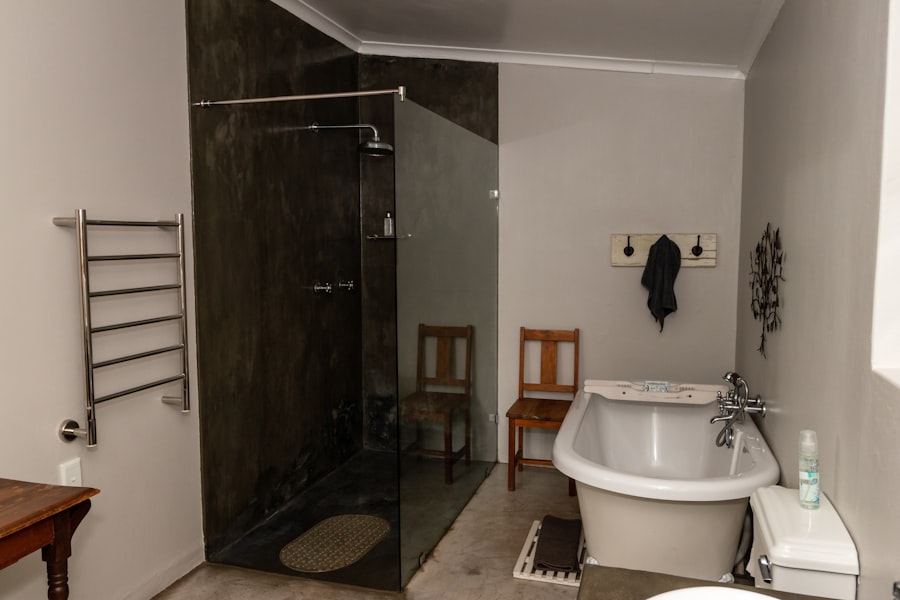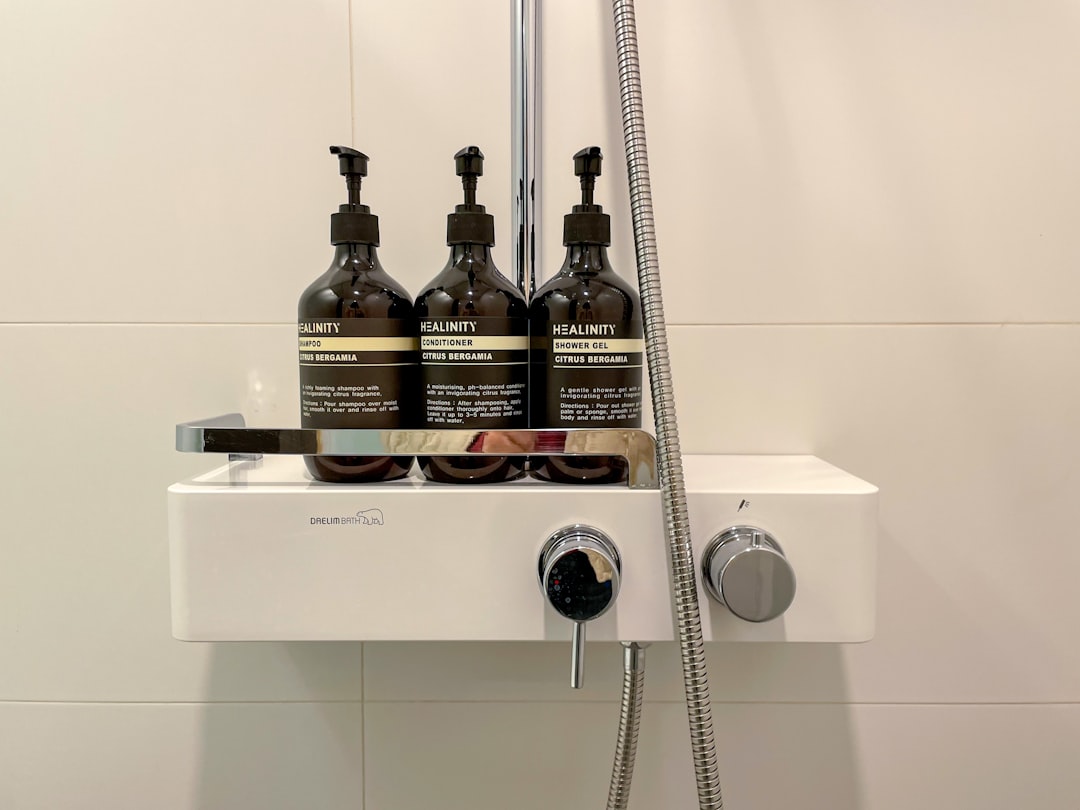ADHD, or Attention Deficit Hyperactivity Disorder, is a neurodevelopmental disorder that affects both children and adults. It is characterized by symptoms such as inattention, hyperactivity, and impulsivity. Individuals with ADHD often struggle with daily routines and tasks that require organization and focus. This can include activities such as getting ready in the morning, completing chores, and maintaining personal hygiene. Daily routines are essential for individuals with ADHD as they provide structure and predictability, which can help manage symptoms and improve overall functioning.
For individuals with ADHD, daily routines can be challenging to establish and maintain. The symptoms of ADHD, such as forgetfulness and difficulty with time management, can make it difficult to stick to a consistent schedule. Additionally, the executive functioning deficits associated with ADHD can make it hard for individuals to prioritize tasks and follow through with them. As a result, daily routines can become overwhelming and stressful for individuals with ADHD, leading to feelings of frustration and inadequacy. It is important for individuals with ADHD to understand the impact of the disorder on their daily routines and to seek strategies for managing these challenges.
Key Takeaways
- ADHD can make daily routines challenging for individuals
- Showers can be an important part of daily routines for individuals with ADHD
- Managing showers in daily routines for individuals with ADHD can be made easier with some tips
- Creating a specific shower routine can help individuals with ADHD stay on track
- Visual aids and reminders can be helpful for individuals with ADHD to remember to shower
The Importance of Showers in Daily Routines for Individuals with ADHD
Showers are an essential part of daily hygiene and self-care routines. They not only help individuals maintain cleanliness but also provide a sense of relaxation and rejuvenation. For individuals with ADHD, showers can be particularly beneficial in helping to regulate emotions and reduce stress. The sensory experience of water and the physical act of showering can have a calming effect on the nervous system, which can be especially helpful for individuals with ADHD who may struggle with hyperactivity and impulsivity.
In addition to the physical benefits, showers also provide an opportunity for individuals with ADHD to engage in a predictable and structured routine. Establishing a consistent shower routine can help individuals with ADHD feel more organized and in control of their daily lives. It can also serve as a transition activity, signaling the start or end of a specific time of day. This can be particularly helpful for individuals with ADHD who may struggle with transitions and shifting from one task to another. Overall, showers play a crucial role in daily routines for individuals with ADHD, providing both physical and emotional benefits.
Tips for Managing Showers in Daily Routines for Individuals with ADHD
Managing showers in daily routines for individuals with ADHD can be challenging, but there are several strategies that can help make the process more manageable. One helpful tip is to establish a consistent shower schedule. This can help individuals with ADHD know what to expect and when to expect it, reducing feelings of overwhelm and uncertainty. Setting a specific time each day for showering can also help individuals incorporate it into their daily routine more effectively.
Another helpful tip is to break down the showering process into smaller, more manageable steps. This can help individuals with ADHD who may struggle with executive functioning and task completion. Breaking down the process into steps such as gathering supplies, undressing, showering, and drying off can make the task feel less daunting and more achievable. Additionally, using visual aids such as checklists or written reminders can help individuals stay on track and remember each step of the showering process.
Creating a Shower Routine for Individuals with ADHD
| Step | Description |
|---|---|
| 1 | Set a specific time for showering each day |
| 2 | Use a timer to help stay on track |
| 3 | Organize shower products in a caddy for easy access |
| 4 | Use a gentle, sensory-friendly body wash |
| 5 | Consider using a shower chair for comfort |
| 6 | Use visual reminders or checklists to follow the routine |
Creating a shower routine for individuals with ADHD involves establishing a consistent schedule and breaking down the showering process into manageable steps. One way to create a shower routine is to choose a specific time each day for showering and stick to it as much as possible. This can help individuals with ADHD incorporate showering into their daily routine and make it a predictable part of their day.
In addition to setting a specific time for showering, it can also be helpful to create a visual schedule or checklist for the showering process. This can include steps such as gathering supplies, undressing, showering, and drying off. Having a visual aid can help individuals with ADHD stay organized and remember each step of the showering routine. It can also serve as a helpful reminder for individuals who may struggle with forgetfulness or distractibility.
Utilizing Visual Aids and Reminders for Showering
Visual aids and reminders can be incredibly helpful for individuals with ADHD when it comes to managing showers in their daily routines. Using visual aids such as checklists or written reminders can help individuals stay on track and remember each step of the showering process. These visual aids can be placed in the bathroom or another prominent location where they will be easily seen and accessed.
In addition to visual aids, utilizing reminders can also be beneficial for individuals with ADHD. Setting alarms or reminders on a phone or other electronic device can help individuals remember when it is time to shower and stay on track with their routine. Reminders can also be used to prompt individuals to gather supplies or begin the showering process, helping to reduce forgetfulness and improve overall organization.
Incorporating Sensory Strategies for Showering with ADHD

Incorporating sensory strategies into the showering process can be particularly beneficial for individuals with ADHD. Sensory strategies can help individuals regulate their emotions and reduce stress, making the showering experience more enjoyable and effective. One sensory strategy that can be helpful is using scented soaps or shampoos that provide a calming or invigorating scent. This can help individuals with ADHD feel more relaxed and focused during the showering process.
Another sensory strategy that can be beneficial is incorporating music or white noise into the showering experience. Playing calming music or white noise in the background can help individuals with ADHD block out distractions and focus on the task at hand. It can also provide a soothing sensory experience that enhances the overall showering routine.
Seeking Professional Help for Managing ADHD and Daily Routines
For individuals with ADHD who struggle with managing daily routines, seeking professional help can be incredibly beneficial. A mental health professional, such as a therapist or psychiatrist, can provide support and guidance for managing ADHD symptoms and improving daily functioning. They can work with individuals to develop strategies for managing daily routines, including showering, and provide tools for improving organization and time management.
In addition to seeking professional help, individuals with ADHD may also benefit from medication management or other treatment options. Medication can help manage symptoms of ADHD, making it easier for individuals to establish and maintain daily routines. It is important for individuals with ADHD to work closely with a healthcare provider to find the right treatment plan that meets their individual needs.
In conclusion, managing showers in daily routines for individuals with ADHD can be challenging, but there are several strategies that can help make the process more manageable. Establishing a consistent shower schedule, breaking down the showering process into smaller steps, using visual aids and reminders, incorporating sensory strategies, and seeking professional help are all important steps in managing showers for individuals with ADHD. By implementing these strategies, individuals with ADHD can improve their daily routines and overall quality of life.
If you or a loved one struggles with ADHD, you may find it interesting to learn about the potential benefits of taking showers as part of a daily routine. Research suggests that the sensory experience of water and the repetitive nature of showering can have a calming effect on individuals with ADHD. To delve deeper into this topic, you can read an insightful article on ADHD and sensory experiences at ADHD-Testing.com. This article provides valuable information on how sensory activities, such as showering, can positively impact individuals with ADHD.
FAQs
What is ADHD?
ADHD stands for Attention Deficit Hyperactivity Disorder. It is a neurodevelopmental disorder that affects both children and adults. People with ADHD may have difficulty with attention, hyperactivity, and impulsivity.
How does ADHD affect showering?
For some individuals with ADHD, the sensory experience of showering, such as the sound of running water, the feeling of water on the skin, and the need to focus on the task, can be overwhelming and challenging to manage.
What are some strategies for individuals with ADHD to make showering easier?
Some strategies for individuals with ADHD to make showering easier include breaking down the task into smaller steps, using a timer to help with time management, and incorporating sensory-friendly products such as calming scents or soft towels.
Are there specific shower products designed for individuals with ADHD?
While there are no specific shower products designed specifically for individuals with ADHD, some may find that using sensory-friendly products, such as gentle body washes and calming scents, can help make the showering experience more manageable.
Can therapy or medication help individuals with ADHD manage showering difficulties?
Therapy, such as cognitive-behavioral therapy, can help individuals with ADHD develop strategies to manage sensory challenges related to showering. Additionally, medication prescribed by a healthcare professional may help manage symptoms of ADHD that impact daily tasks, including showering.














